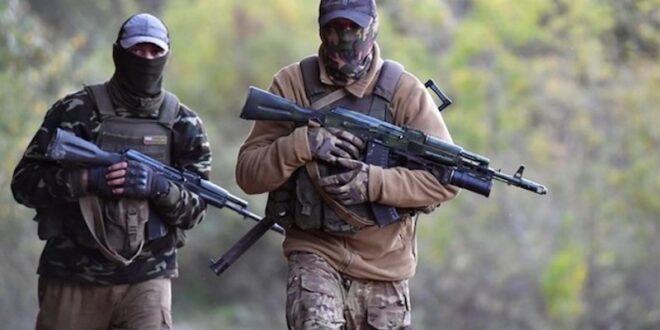The attempted armed mutiny in Russia on 23–24 June 2023 by the Wagner private military company, led by Russia’s controversial oligarch Yevgeny Prigozhin, is continuing to generate shockwaves domestically and internationally. While the coup has triggered debates about the survivability of Vladimir Putin’s regime, some preliminary conclusions can also be drawn about what the mutiny means more broadly for Asia.
Two principal issues need to be considered — what the future of the Wagner Group is and the implications of its attempted mutiny for Moscow’s international standing in Asia.
Formally established in 2014, the Wagner Group gained a reputation for being the world’s most effective but lethal private security contractors, specialising in missions abroad in direct support of the Russian state or its foreign clients. Initially comprising ex-active service personnel, the Wagner Group was active in Syria and parts of Africa, where it established a strong physical, informational and reputational footprint.
Since the start of Russia–Ukraine confrontation in 2014, the Wagner Group has been actively involved in aiding pro-Russian separatist forces in the Donetsk and Luhansk regions. From 2022, its expanded combat element engaged in frontline operations against the Ukrainian forces in central Donbas.
The fallout from the is likely to affect the Wagner Group’s future operations abroad, including within parts of Asia where their activities are less well documented. With the release of disclosed reports of targeted actions against Wagner’s command in Syria, the group’s future operations will likely be transformed as its residual element loses operational autonomy.
While evidence of the extent and scale of the company’s operations elsewhere in Asia is scant, concerns have been expressed about possible involvement in covert activities in Afghanistan, Myanmar and North Korea. Activities reported include the recruitment of former special forces personnel to fight against Ukraine, technical assistance and training, and alleged illegal conventional arms transfers.
Within Myanmar and North Korea, it is possible that the coup will result in any links controlled by the Wagner being transferred to official channels or other private entities acting in the interests of the Russian state. While Russia’s ability to utilise the Wagner Group for future clandestine activities across Asia will be curtailed, some of its elements — absorbed in Russia’s power structures or within another company — may still be called on.
A more problematic implication of the attempted coup is the potential reputational risks for Putin’s credibility as a sustainable political force controlling Russia in the eyes of Asian countries. During the online meeting of the Shanghai Cooperation Organisation on 4 July 2023, Putin emphasised that the mutiny did not undermine the unity of his nation or ruling elites, flagging that he remained in control of the country.
Still, questions linger as to whether Prigozhin’s actions exposed hidden problems within the Kremlin and the larger Russian political spectrum. The release of some details of a special meeting between Putin, Prigozhin and the Wagner Group commanders is likely to raise more questions than put the matter to rest.
The ongoing ambiguity could influence Asia’s ruling elites’ future views of their countries’ interactions with Russia at a time when Moscow is desperately trying to strengthen its ties with the region. China is a good example. Although Beijing’s official response to the news of the coup was carefully worded considering its special partner status, concern was nonetheless expressed in official media outlets.
The reaction of other many other Asian nations was equally mixed. Official commentary has either been restrained or inclined to condemn the mutiny, yet regional media has tended to focus more on the problems for Putin’s regime. Some Indian media went further by openly questioning Russia’s stability, while the Thai press speculated that a weakened Putin might be more compliant to Beijing’s influence.
It will take some time for the Kremlin to restore the confidence of regional elites in its political sustainability. The Russian diplomatic corps working across Asia are now facing a major task of damage control and reputation repair. Putin will have to prove that he remains in charge, that the Kremlin is united and that Russian oligarchs like Prigozhin are not shaping the country’s internal and foreign agendas. If he fails, Russia risks losing the image it has promoted over the past two decades — as an alternative power centre to the United States and China.
 Eurasia Press & News
Eurasia Press & News




